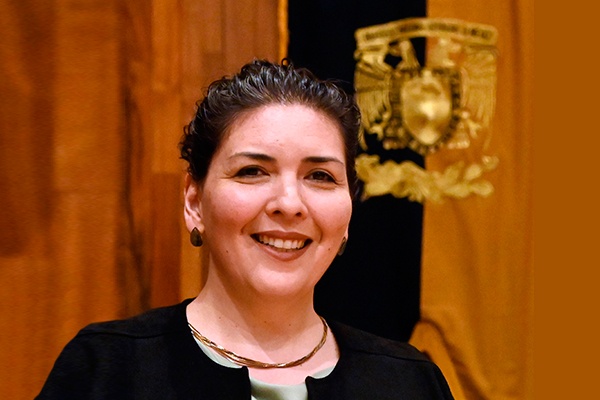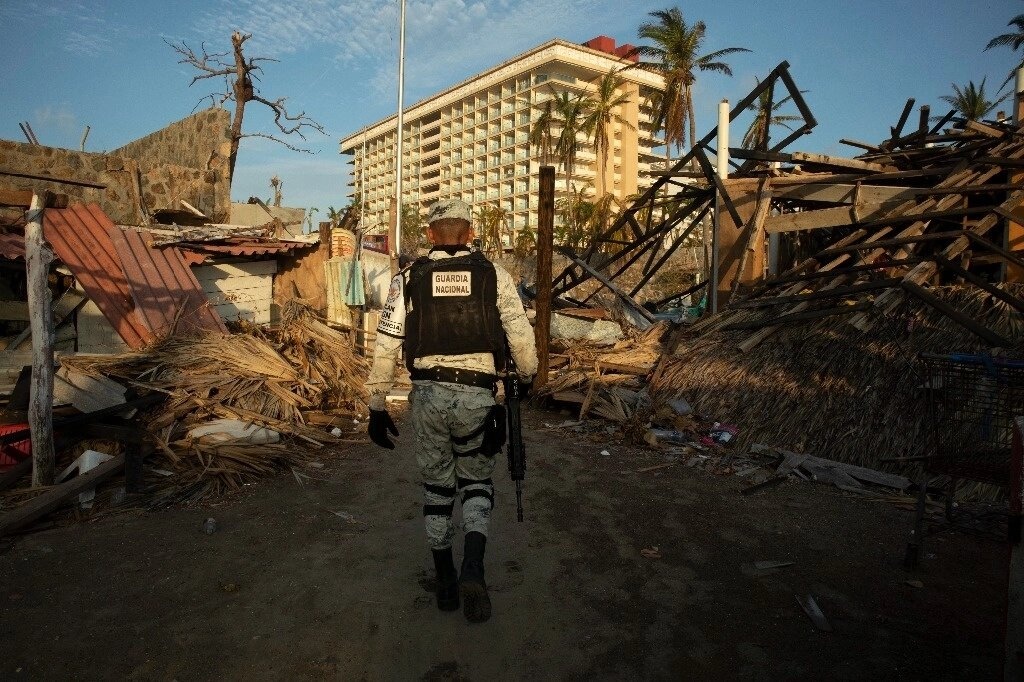Quito. On the night of November 13, King Felipe VI of Spain and the president of Portugal, Marcelo Rebelo de Sousa, arrived in Ecuador. At the last minute, the president of Paraguay, Santiago Peña, canceled his presence. With this, the 29th Ibero-American Summit of heads of state, in Cuenca, was reduced to two presidential figures, including that of the host, Daniel Noboa, and that of the Spanish monarch, when the call was for 22 rulers, to a conclave that concludes today with an official statement and photo.
From the query made by The Day to ambassadors from the absent countries, the reason would be three issues that the Ecuadorian Foreign Ministry did not consider: the assault on the Mexican embassy last April, the serious insecurity experienced by the host nation, accentuated in recent weeks with an unusual increase in violent murders, and the energy crisis, which forces the local government to cut the electricity 12 hours a day on average.
Even on the eve of the inauguration, a statement was circulated by several conservative former presidents, from the group called the Democratic Initiative (IDEA), to condemn the suspension of the vice president, Verónica Abad, and ask the Organization of American States to monitor the situation with the Inter-American Democratic Charter. Among the signatories are José María Aznar, Felipe Calderón, Eduardo Frei and Andrés Pastrana, as well as three former Ecuadorian presidents.
Unstable political scene
In fact, the cancellation of the Paraguayan delegation occurs due to the unstable political and social scenario
in Ecuador, sources from the presidency in Asunción reported. The Colombian Foreign Ministry also expressed that, after Noboa’s statements about Gustavo Petro’s alleged lack of solidarity with Ecuador, it is difficult to be reciprocal
.
However, other diplomatic delegations questioned an agenda and declaration that calls for a debate and a consensus position. Never since 1991 has there been so little attendance at an Ibero-American summit. The lowest attendance registered with 13 heads of state were in Panama in 2013 and in Cartagena 2016.
Given this, the statements of Foreign Minister Gabriela Sommerfeld left more doubts, since when welcoming the delegations from 19 of the 22 Ibero-American countries, she emphasized that the work of those responsible for Foreign Relations is crucial, since they must present proposals that the rulers will approve
during his first day of work.
This summit will reaffirm the commitments of the Ibero-American community to find innovative solutions
in building a future fairer and more promising
for the countries that make it up, the diplomat assured.
They protest against Noboa
While the king of Spain and the president of Ecuador participated in social events, mobilizations of the so-called Counter-Cumbre, led by 70 social organizations, were recorded in the streets of Cuenca to protest the official conclave. Before noon yesterday, these groups held a ceremony under the customs of their native peoples and immediately began the mobilization through the Historic Center, considered Cultural Heritage of Humanity by UNESCO.
to the cry of Summit out!
the organizations marched from the Plaza del Herrero to the Chaguarchimbana Museum, headquarters of the international meeting.
The so-called Countersummit began on November 13, with various activities at the University of Cuenca. There, discussions were held aimed at the construction of a document in which, fundamentally, they pointed out the rejection of Noboa’s mining and social policies.
!function(f,b,e,v,n,t,s)
{if(f.fbq)return;n=f.fbq=function(){n.callMethod?
n.callMethod.apply(n,arguments):n.queue.push(arguments)};
if(!f._fbq)f._fbq=n;n.push=n;n.loaded=!0;n.version=’2.0′;
n.queue=[];t=b.createElement(e);t.async=!0;
t.src=v;s=b.getElementsByTagName(e)[0];
s.parentNode.insertBefore(t,s)}(window, document,’script’,
‘
fbq(‘init’, ‘133913093805922’);
fbq(‘track’, ‘PageView’);
fbq(‘track’, ‘Contact’);
fbq(‘track’, ‘Donate’);
fbq(‘track’, ‘FindLocation’);
fbq(‘track’, ‘Lead’);
fbq(‘track’, ‘Search’);
fbq(‘track’, ‘Subscribe’, {value: ‘0.00’, currency: ‘MXN’, predicted_ltv: ‘0.00’});
fbq(‘track’, ‘ViewContent’);
#IberoAmerican #Summit #Ecuador #failure
–
**To what extent did the political climate in Ecuador, particularly the issues of the Mexican embassy siege, insecurity, and the energy crisis, contribute to the low attendance at the Ibero-American Summit? ** (This question encourages analysis of the relationship between Ecuador’s internal situation and the summit’s outcome).
## The Ibero-American Summit in Ecuador: A Disappointing Turnout
**Introduction:**
Welcome to World Today News. Today, we’re discussing the underwhelming attendance at the 29th Ibero-American Summit held in Cuenca, Ecuador. Joining us today are two distinguished guests to shed light on this significant event.
**Guest 1:** **Dr. Maria Sanchez**, Professor of International Relations at the University of Madrid.
**Guest 2:** **Mr. Alejandro Rodriguez**, Latin American correspondent for *The Global Times*.
**Section 1: The Absence of Leaders – A Political Statement?**
* **Interviewer:** Dr. Sanchez, let’s start with the elephant in the room: the notably low attendance at the summit. Only two presidents – besides the Ecuadorian host – attended. What factors might have contributed to this unprecedented situation?
* **Dr. Sanchez:**
* **Interviewer:** Mr. Rodriguez, your publication has reported extensively on regional politics in Latin America. Do you believe the low attendance signals a deeper issue concerning trust or political alignment within the Ibero-American community?
* **Mr. Rodriguez:**
**Section 2: Ecuador’s Political Climate and the Summit’s Impact**
* **Interviewer:** One common thread discussed in the article is Ecuador’s current political climate. Dr. Sanchez, how might issues like the Mexican embassy siege, insecurity concerns, and the energy crisis have influenced the decisions of other countries to participate?
* **Dr. Sanchez:**
* **Interviewer:** Mr. Rodriguez, we see protests occurring in Cuenca against the Summit. What are the main concerns expressed by these protesters, and how do they reflect the broader frustration with the current Ecuadorian government?
* **Mr. Rodriguez:**
**Section 3: The Mission of the Summit – Was It Achieved?**
* **Interviewer:** Dr. Sanchez, despite low attendance, Ecuador’s Foreign Minister expressed hope for the summit to produce “innovative solutions” for the Ibero-American community. Do you believe anything constructive can be achieved with such limited representation?
* **Dr. Sanchez:**
* **Interviewer:** Mr. Rodriguez, what are the potential implications of this low attendance for future Ibero-American summits? Could this set a precedent for decreased participation and effectiveness in addressing crucial regional issues?
* **Mr. Rodriguez:**
**Section 4: Looking Forward – A Call for Reflection**
* **Interviewer:** Both of you offer valuable insights into this complex situation. Dr. Sanchez, what lessons, do you think, can be learned from this underwhelming summit, and what steps can be taken to rebuild trust and encourage future participation?
* **Dr. Sanchez:**
* **Interviewer:** Mr. Rodriguez, any final thoughts on the significance of this event and its potential impact on the future of the Ibero-American community?
* **Mr. Rodriguez:**
**Conclusion:**
We thank Dr. Sanchez and Mr. Rodriguez for their insightful perspectives. The 29th Ibero-American Summit in Ecuador has undoubtedly raised more questions than answers. It remains to be seen how this event will shape the future of regional cooperation within the Ibero-American community.


